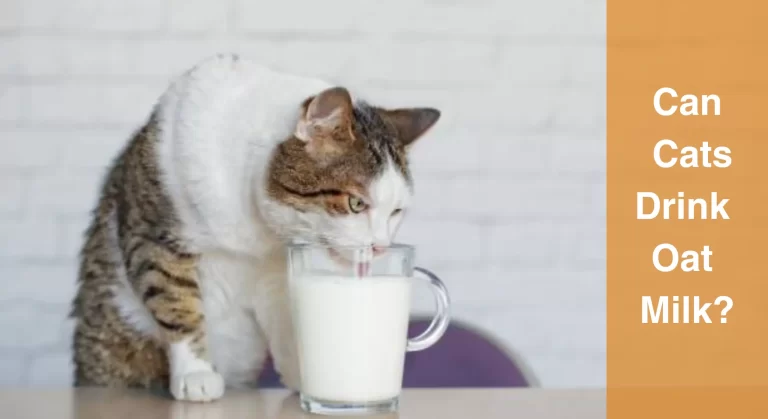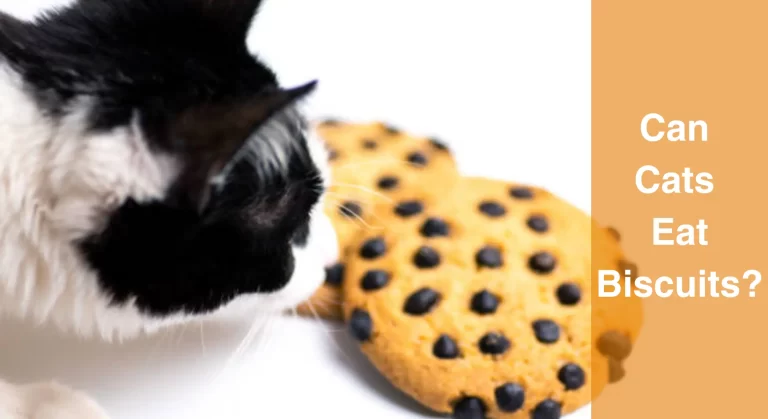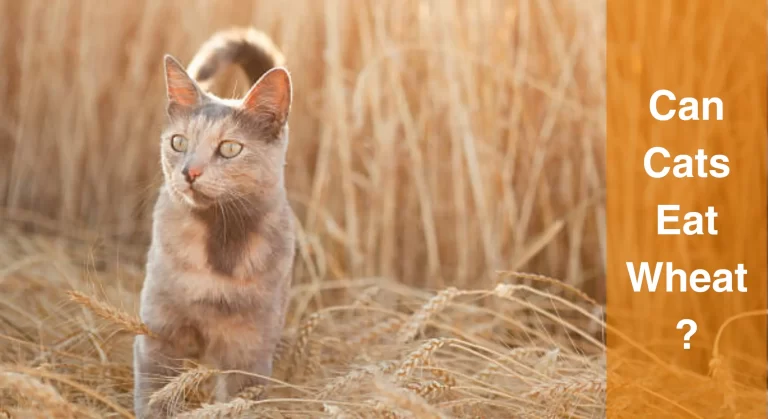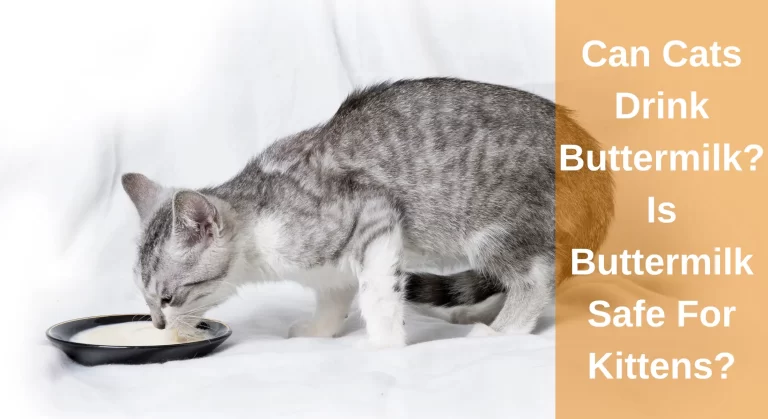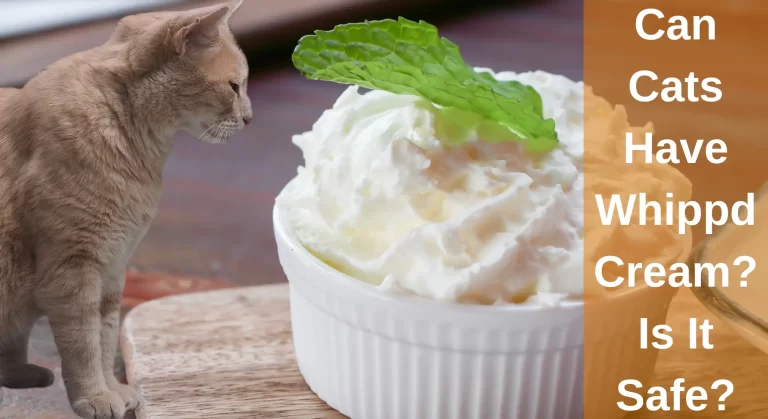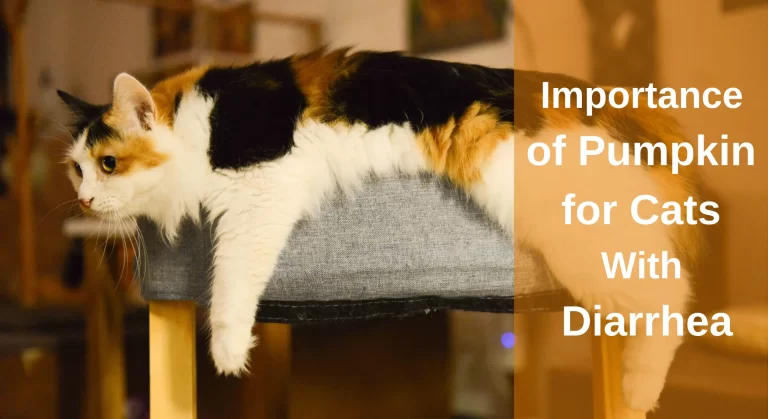Can Cats Eat Pork? Exploring the Health Benefits and Risks of Feeding Cats Pork
As you know that cats are carnivores and big admirers of meat, however, some kinds of meat are better for cats to consume as compared to others. Pork is multi-purpose meat, and it’s used in a variety of recipes, from BBQ to sausages. With its popularity in human nutrition, pet parents might be thinking about whether this salty treat is suitable for their furry friend or not.
Yes, cats can only eat completely cooked pork, never uncooked pork. Cooked pork can be served to a cat after removing all bones. Pork offers many benefits to cats as it includes protein, calcium, zinc, nicotinic acid, and B vitamins. Sadly, pork contains a lot of saturated fats and sodium, which can result in obesity and high arterial pressure (hypertension).
While a small amount of pork treat is acceptable, it is best to feed poultry and fish to your cat as a healthy diet. However, your cat may want to sneak a piece of pork. Don’t worry, in this article, we’ll go through a few of the pros and drawbacks of pork, and how to feed it safely to cats.
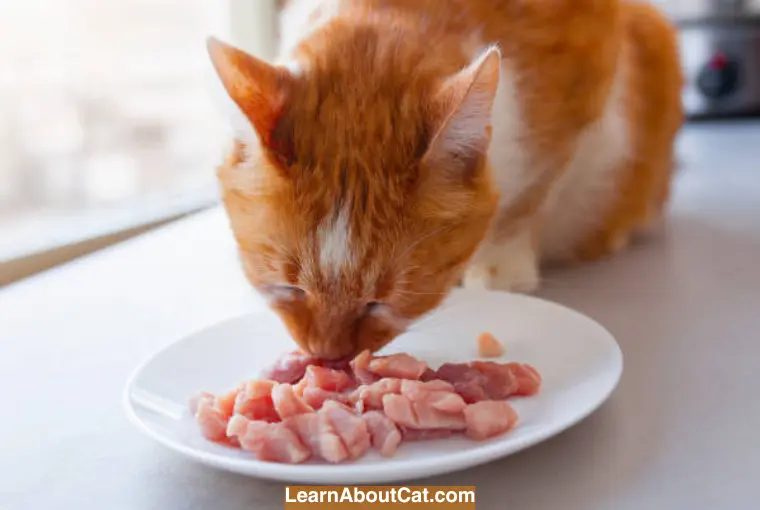
Can Cats Eat Pork?
Cats are capable of ingesting pork in moderation. However, it is crucial to take the appropriate measures to ensure that it is prepared correctly and provided in reasonable amounts.
Pork must be cooked thoroughly and free of any flavourings or seasonings, as they could potentially be harmful to felines.
Pork is not poisonous to cats, yet it’s packed with salt and cholesterol, these two elements aren’t required by cats. It is recommended that it be offered in small portions as treats rather than a staple in their regular diet.
House cats sleep between 16 and 20 hours per day, which means they aren’t the most energetic. If you feed a cat high-fat, high-sodium diet, she is unlikely to burn off the calories. Additionally, fat accumulates in their vessels, making them worse, and causing them to sleep- a death spiral.
If you would like to feed your cat pork as a reward, unrefined pork with no sodium or additives is the finest option
Also Read: Can Cats Eat Beef Jerky?
Is Pork Good for Cats?
Pork is not the ideal choice for cats. Your cat may quickly put on weight if they eat meals high in fat, which might result in overweight and arterial obstructions.
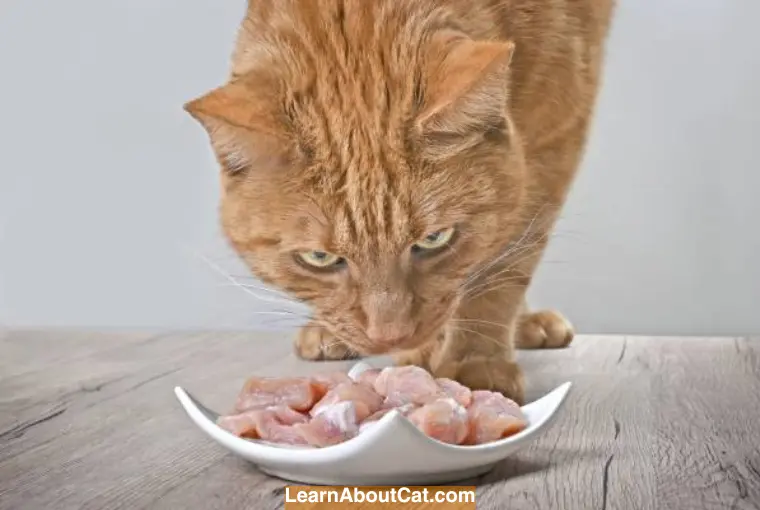
Your cat’s kidneys, spleen, and heart may become overworked from eating excessive salt, which could also result in sodium overdose.
So, instead of a full dinner, you should only have these pork delights sometimes. Moreover, other meats such as chicken contain less sodium and fat and much more protein which makes them a far more nutritious option for your furry friend.
Benefits of Pork for Your Cat
Pork has certain health advantages regardless of its elevated fat and salt levels. Let’s discuss its nutritional value:
Rich Protein Content
Pork, being meat, is particularly packed with protein, which is essential for your cat’s diet. Cats require a lot of protein to remain fit. Pork contains all of the necessary amino acids that your cat requires to maintain his body working smoothly. Protein increases muscle strength in cats.
Cats who do not get sufficient protein may have exhaustion, excess weight, starvation, skin conditions, losing hair, and gastrointestinal problems.
Rich Vitamin content
Pork is famous for its rich nutrient content, especially vitamins B12, and B6. Vitamin B12 is essential for cats. They are required for the proper functioning of their neurological, immunological, and gastrointestinal system. Pork can also help with anaemia illnesses by supplying B vitamins.
These vitamins aid in the transformation of carbohydrates into energy, the development of neurons, and the production of red blood cells. Iron, zinc, and nicotinic acid are also included in the meat.
Taurines are also found in pork which is crucial for the wellness of the gastrointestinal tract and digestive organs, immunity, and brain. It is also necessary for regular pregnancy and embryonic development.
Taurine is an important amino acid that cats need from their food because they cannot produce it. They must consume a lot of protein to receive this essential component, and a lack can be fatal.
Now, you’ve gained enough information about the advantages of pork; let’s get to the points you must be aware of when giving this delectable protein to your cat.
You Might Like to Find Out: Can Cats Eat Wheat?
Why Can’t Cats Have Pork? Dangers of Pork for Your Cat
Cats are only allowed to consume pork in small amounts because of the following reasons:
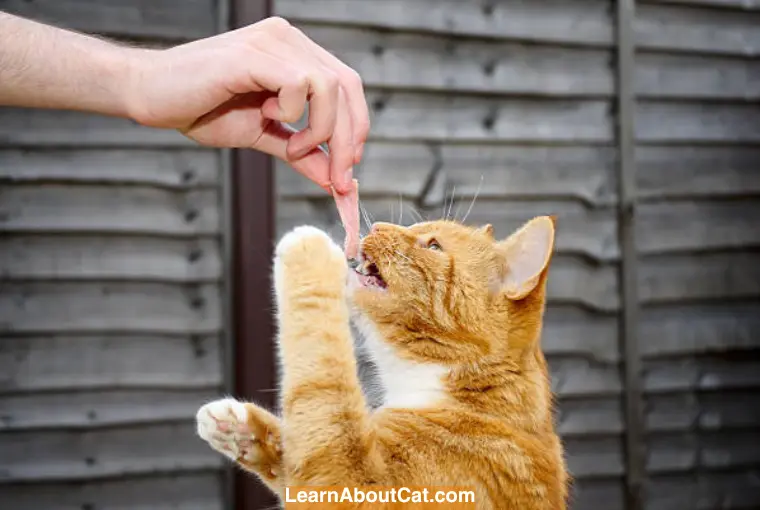
Excess Fatty Content
When compared with various types of meat, pork contains an extraordinarily excessive amount of fat. Excessive fat promotes excessive weight and fatness, making your cat prone to prediabetes or joint illness.
With a greater fat level, there’s a smaller amount of protein in the portion of pork since the protein is substituted by fat. This means that pork will provide less nutrient benefit to your cat than other proteins.
Also, excess fat may increase the possibility of pancreatitis in felines, which is an infection of the pancreatic lining that causes nausea, diarrhea, and stomach discomfort.
This ailment can be moderate and temporary or extremely severe and require cats to be hospitalized for medication.
Check Out: The Ultimate Guide to – How to Help a Cat Lose Weight with Multiple Cats at Home?
Excess Salt Ratio
The excessive saltiness of pork is another issue. Cats are more prone to salt concentration than humans, so excessive amounts may induce thirst or, in extreme situations, salt intoxication, which can leave them seriously ill.
Nausea, diarrhea, loss of appetite, tiredness, clumsiness, loss of coordination, exhaustion, or excessive urination are the signs of salt toxicity.
This is a critical condition that necessitates skilled immediate treatment. Fluid treatment is frequently required to rectify the imbalance produced by high sodium consumption.
Raw Pork Hazards
Uncooked pork shouldn’t ever be consumed by cats because it may include parasites such as roundworm or tapeworm.
If ingested, these parasites can replicate in your cat’s gastrointestinal system and cause it to have an irritated stomach, weight reduction, and increased hunger.
Pork Bones
Pork bones are hazardous to cats because they may induce choking or become lodged in the gastrointestinal system, causing an obstruction.
Pork Allergies
Commercially marketed pork can have a variety of spices, synthetic sweeteners, and additives that don’t fit in the cat diet. Moreover, cats may develop pork allergies, after eating processed pork. Symptoms of allergies in cats are as follows:
- Dysentery
- Puking
- Hair fall
- Dullness in coat
- Irritation
- Intense fatigue
If your cat reacts negatively to pork stop feeding it to her, and monitor her symptoms. Bring her to the vet if her symptoms continue to worsen.
How to Safely Feed Pork to Your Cat?
You must need to take some precautions before giving a piece of pork to your furry friend. Skipping the below-mentioned precautions can significantly reduce the nutritional value of the pork and even put your cat’s health in danger.
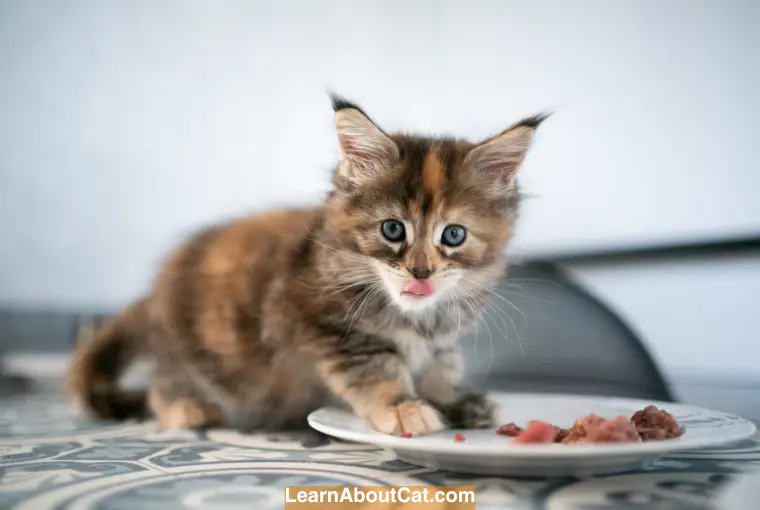
Remove Bones
Although dogs enjoy chewing on bones, for cats it only poses a choking hazard. That’s why you have to thoroughly separate all bones from the piece of pork you offer your feline.
Cook Carefully
Any meat you intend to serve your cat should be completely roasted before you do so. Pork might contain parasites that die when cooking properly. If you don’t completely boil the pork, the parasites remain alive and they will harm your cat.
Intresting Reading: Can Cats Eat Cooked Chicken Bones? Cooked Vs. Raw [Explained]
Give Moderate Amounts
As cats require plenty of protein and they consume a diet largely composed of meats, appears counterproductive to think that you should give a moderate amount of pork to your cat. Because the protein in bulk may irritate cats’ stomachs and cause other issues.
Serve Without Seasonings Flavours
Pork must be served without any additional seasoning, salt, or any other sauces. All these ingredients can be harmful to your cats’ health.
How to Cook Pork for Cats
If you do decide to give your cat pork as an occasional treat, it’s important to cook it thoroughly to eliminate potentially harmful bacteria and parasites.
Here’s how to cook pork for cats:
- Choose lean cuts of pork, such as pork loin, and trim off any visible fat.
- Preheat your oven to 350°F.
- Place the pork in a baking dish and bake it in the oven for approximately 30-35 minutes, or until it’s cooked through.
- Allow the pork to cool down completely before serving it to your cat.
- Cut the pork into small, bite-sized pieces to make it easier for your cat to eat.
- Offer the cooked pork to your cat in moderation as a treat, along with their regular balanced and nutritionally complete cat food diet.
Remember to always consult with your veterinarian before offering your cat human food as a treat.
Healthier Alternatives to Pork
There are a few better choices for your feline. These alternatives are lower in fat, have less salt, contain more protein, and also include advantageous nutrients that pork doesn’t include.
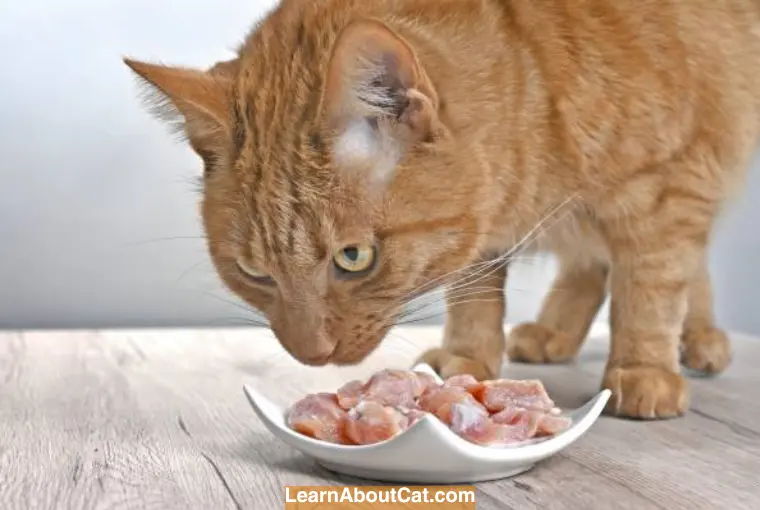
Fish
Fish is high in protein and frequently contains significantly less salt than pork. Moreover, fresh fish is more beneficial as it includes no additives. Additionally, fish is high in omega-3 fatty acids, which are extremely beneficial to your cat and include the following:
- Minimizes coat shedding
- Encourages fur growth
- Reduces autoimmune diseases
- Minimizes tumours
- Treats epilepsy
Intresting Reading: Can Cats Eat Goldfish Crackers?
Chicken
Chicken is a tasty snack for cats and includes lots of protein. Hence, it’s used as a major protein source in all cat meals. Also, it is served as a superb treat. Keep in mind it’s properly cooked and doesn’t contain any seasonings.
Find Out: Can I Feed My Cat Chicken Every Day?
Frequently Asked Questions
Do cats like the taste of pork?
Any kind of meat, even pork taste, is delicious to cats! Although most cats will only consume a little amount of pork or cat chow which contains a pork flavour, they will likely enjoy other proteins like chicken or meat.
Can cats eat cooked pork meat?
Yes! you can feed cooked and unseasoned pork to your cat. But cooked pork must be given in moderate amounts because of its high fat and sodium concentrations.
Can cats eat raw pork?
It is not recommended to feed raw pork to cats. Raw pork contains many germs and pathogens found which might be harmful to your cat’s well-being. Choking hazards or even injuries can result from eating small bones in raw pork.
How much pork can a cat eat?
Keep in mind that pork treats must only constitute 10% of your cat’s everyday food and it’s best to only give your cat tiny quantities of pork as an occasional snack. Pork chops cooked in a few little chunks are acceptable.
How often can a cat eat pork?
The amount of pork in your feline’s meal shouldn’t be excessive. Pork-flavoured cat chow is acceptable, but roasted pork must be given seldom maybe once per week as a snack.
Is pork used in commercial cat food?
Commercial cat meals occasionally contain pork as an additive, yet it isn’t the most typical protein to do so. Because pork is so heavy in sodium and fat, many cat meals use chicken, duck, or seafood instead of a pig as the protein source.
Can cats eat pork rinds?
Cats shouldn’t eat pork rinds. Besides their fat ratio, pork rinds contain little nutrient value. So, you shouldn’t even give your cat pork rinds as a snack.
Can cats eat pork chops?
No, cats can’t consume pork chops. Although, if you cooked them properly still cooked pork chops have a higher tendency to break. Your cat could suffer damage from the smaller pieces that separate.
These could irritate your cat’s jaws and become lodged in its teeth. Your cat can even suffocate if the bones get stuck in its esophagus.
Can kitten eat pork?
While pork is a source of protein, it’s not recommended to feed kittens pork. Pork is high in fat, and their digestive system may not be able to handle it, causing digestive upset and pancreatitis.
Final Words
Like all meats, pork is rich in protein which is good for your cat. But, pork is higher in fat than other meats, which means it’s not the healthiest snack for your cat. Even so, a little won’t hurt or even create a pleasant treat if it’s cooked properly. Only occasionally offer it, and don’t season it with salt or other ingredients.
Being carnivores, cats require meat to exist, but they receive all of it in their meal. Undoubtedly, they may appreciate the flavorful, salted pork, but only in limit. However, focus more on lighter foods like fish and poultry that will make your cat happy and healthy.
Who is Isabella?
My name is Isabella, and I am a dedicated and knowledgeable cat enthusiast. With years of experience caring for cats and a deep love for felines, I made a mission to help other cat lovers navigate the challenges of cat ownership.

